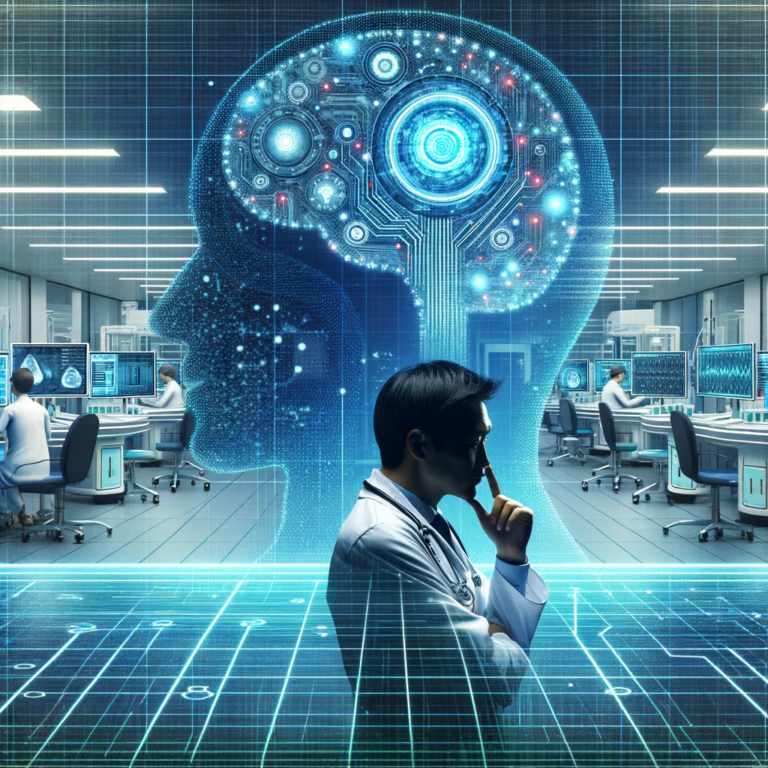In the ever-evolving health care landscape, the synergy between human expertise and artificial intelligence (AI) is not just beneficial—it is essential. As we stand on the brink of a technological revolution, it is crucial to recognize that the integration of AI in health care should enhance, not replace, the human touch. This article explores the indispensable role of health care professionals in an AI-driven environment, emphasizing why the human element is irreplaceable in achieving the best patient outcomes.
The complementary strengths of AI and human expertise
1. Accuracy and efficiency: the AI contribution. AI in health care brings many advantages, including processing large datasets faster than any human could, identifying patterns that might elude human observers, and providing diagnostic suggestions based on vast amounts of medical literature. These capabilities can significantly reduce the time needed for diagnostic processes, allowing health care providers to focus more on patient care rather than administrative tasks.
2. Empathy and ethical judgment: The human contribution. While AI can process and analyze data with astonishing speed and accuracy, it cannot understand human emotions and the subtleties of patient interaction. The empathy that health care professionals provide is crucial in patient care. Decisions often involve considerations beyond the clinical data, such as ethical issues, patient preferences, and socio-economic factors, which AI alone cannot fully appreciate or incorporate.
Case studies: AI and human collaboration
Case study 1: Diagnostic accuracy. In one notable instance, a combination of AI tools and clinical experts was used to diagnose complex cases in oncology. The AI system analyzed thousands of images and suggested diagnoses based on patterns learned from a vast dataset. However, the final decisions were made by human doctors, who considered the patient’s medical history, lifestyle, and personal preferences before finalizing the treatment plan. This collaborative approach led to a higher accuracy rate and more personalized patient care.
Case study 2: Personalized treatment plans. Another example can be found in the field of personalized medicine. AI algorithms can suggest treatment plans based on genetic information and clinical data. However, human health care providers played a vital role in considering the patient’s psychological readiness, family situation, and potential side effects, ensuring the treatment plan was clinically sound and tailored to the patient’s unique circumstances.
Challenges and considerations in integrating AI with human expertise
1. Ethical implications. The deployment of AI in health care raises several ethical questions: How much decision-making should be automated? What happens in the event of an AI error? Who is responsible? To navigate these ethical dilemmas, it is essential to establish clear guidelines and maintain human oversight.
2. Training and adaptation. For AI to be effectively integrated into health care, professionals must be trained not only in their use but also in understanding their limitations. This dual competence will be crucial in overseeing AI operations and ensuring they are used judiciously.
3. Patient trust. Patients might be skeptical about receiving health advice from a machine. The presence of a human doctor goes a long way in building trust and ensuring the patient feels cared for. It is vital that health care systems not lose sight of the importance of human interaction in the healing process.
The future: Enhancing human-AI collaboration
To optimize the benefits of AI in health care, the following strategies could be considered:
Developing complementary systems. Create AI tools that complement human skills, such as systems that handle routine tasks while leaving complex decision-making to professionals.
Continual learning and adaptation. Both AI systems and health care providers should engage in continual learning. AI systems can be updated with the latest medical research and data, while professionals can stay abreast of new AI developments and applications.
Ethical AI use. Establish ethical guidelines for AI use that prioritize patient welfare and maintain human oversight, especially in critical decision-making processes.
Conclusion
As we advance into a new era of medical technology, the integration of AI in health care presents promising opportunities to enhance patient outcomes and operational efficiency. However, the human element remains irreplaceable. The empathy, ethical judgment, and personal touch provided by health care professionals are as crucial as ever. By ensuring that AI serves as a complement rather than a substitute, we can harness the best of both worlds to create a more efficient, empathetic, and effective health care system.
This balanced approach maximizes the strengths of both humans and AI and addresses each’s potential weaknesses. As we continue to navigate this integration, it is the collaboration between human insight and artificial intelligence that will truly revolutionize health care.
Harvey Castro is a physician, health care consultant, and serial entrepreneur with extensive experience in the health care industry. He can be reached on his website, harveycastromd.info, Twitter @HarveycastroMD, Facebook, Instagram, and YouTube. He is the author of Bing Copilot and Other LLM: Revolutionizing Healthcare With AI, Solving Infamous Cases with Artificial Intelligence, The AI-Driven Entrepreneur: Unlocking Entrepreneurial Success with Artificial Intelligence Strategies and Insights, ChatGPT and Healthcare: The Key To The New Future of Medicine, ChatGPT and Healthcare: Unlocking The Potential Of Patient Empowerment, Revolutionize Your Health and Fitness with ChatGPT’s Modern Weight Loss Hacks, Success Reinvention, and Apple Vision Healthcare Pioneers: A Community for Professionals & Patients.

